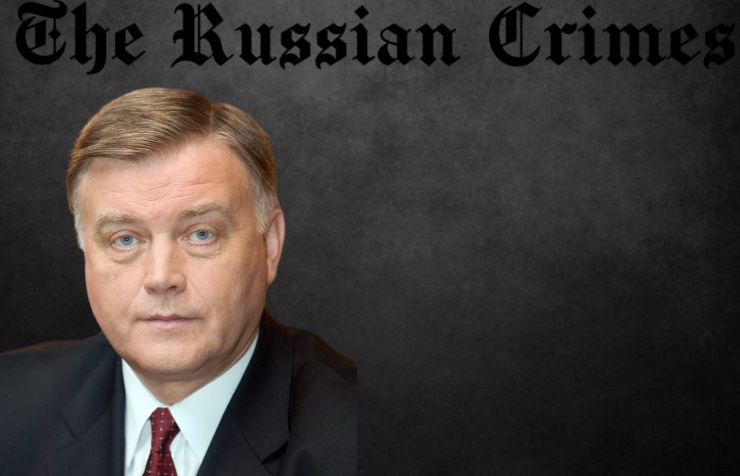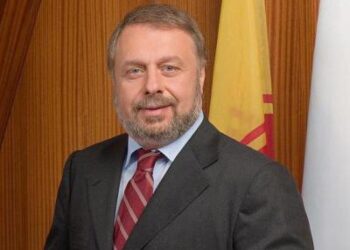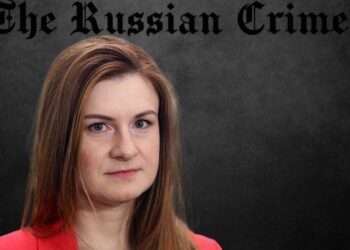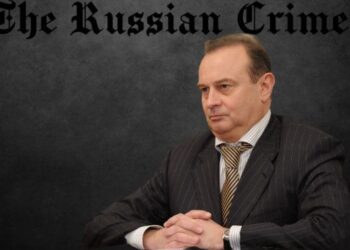Full name:
Yakunin Vladimir
Date of Birth
30 June 1948
Citizenship
Russia
Yakunin Vladimir Professional field/official position
President of World Public Forum “Dialogue of Civilizations,” former President of Russian Railways (2005 – 2015),
Yakunin Vladimir biography
YAKUNIN Vladimir Ivanovich (b. 1948) graduated from Voenmekh (Leningrad Mechanical Institute) in 1972 majoring in aircraft manufacturing. Later, Yakunin took part in the designing and maintenance of long-range ballistic missiles.
- In 2018, Yakunin confirmed in his book that he was an officer of the KGB, working in the scientific and technical department of its First Main Directorate, which was engaged in espionage and all kinds of sabotage outside the USSR. In his own words, his position in the KGB was “captain-engineer.” Like many KGB officers, Yakunin, who worked in this structure for a total of 22 years, soon found himself in the “diplomatic” work in the West. In 1985-91, he was the secretary of the Permanent Mission of the USSR to the UN in New York.
- In February 1991, Yakunin returned to Russia. Upon returning, he became the head of the board of the company International Center for Business Cooperation (St. Petersburg). Around this time, he met with Vladimir Putin. On November 10 of the same year, he, together with Putin and his friends, co-founded the Lake (Ozero) Dacha cooperative to the north of St. Petersburg. In 1997, Vladimir Putin moved to Moscow and in March became the head of the Main Control Directorate (GKU) in the presidential administration, and Vladimir Yakunin was soon appointed head of the northwestern branch of the GKU.
- After Putin came to power in 2000, Yakunin also moved to Moscow and took the post of Deputy Minister of Transport of the Russian Federation. In this ministry, he oversaw the merchant fleet and seaports. In February 2002, Yakunin received the position of Deputy Minister of Railways of Russia. This ministry was abolished on March 9, 2004. Part of the functions of this ministry was transferred to the newly created Russian Railways state corporation. Almost a month after the creation of Russian Railways, its board unanimously approved Yakunin’s candidacy for vice president of the new structures.
- On June 14, 2005, by order of the Russian government, Vladimir Ivanovich headed this largest railway company in Eurasia. Besides, in 2008, Yakunin also headed the Armenian South Caucasus Railway (SCR), which was completely dependent on Russian Railways, and was meddled in corruption scandals (for example, the Armenian authorities accused the road of tax evasion, embezzlement and non-fulfillment of obligations to develop the infrastructure of the SCR).
Despite corruption scandals in Russian Railways itself, Yakunin was twice reassigned to the post of head of this railway giant. After Russia annexed Crimea in 2014, he was included on the US sanctions list (and on Canada’s extended sanctions list in 2019). However, the EU did not include Yakunin on its lists. Yakunin (who was also the head of the International Union of Railways) got under American sanctions not for the activities of Russian Railways in Crimea, because formally so-called The Crimean Railway, managed by the occupation authorities of the peninsula, is not part of the Russian Railways, but because he was and is one of Putin’s closest associates and, as such, supported the annexation of Crimea. We know about his position from his own words (we quote his blog):
“A group of French parliamentarians, members of the French National Assembly and Senate, visited Crimea. The visit caused a great public outcry, and I have a cue about this. Such a visit, of course, means the desire to get objective information about the situation in Crimea, since the desire to know the truth is natural for any politician. Moreover, the French distrust of their media is equal to the degree of the hypocrisy of these media in covering events related to Ukraine and Crimea …” - As for corruption scandals in Russian Railways that are directly related to Yakunin, they began back in 2013 after a series of investigations by Alexey Navalny’s Anti-Corruption Fund. Briefly summarizing these investigations, we were talking about the misappropriation of enormous amounts of money by the state-owned company, which was used for the construction of huge mansions in the Moscow Region. It is highly likely that the enormous resonance caused by these investigations made the Kremlin finally dismiss Yakunin in 2015. The large-scale corruption in Russian Railways associated with the enrichment of the company’s top management led to a sharp impoverishment of its ordinary employees, which it was not possible to hide. In 2013, Yakunin personally reported to Putin about the difficult financial situation in Russian Railways, but he explained it by the falling demand for rail transportation. This reason really played a role, but not the main one, because the decline in economic performance in the company amounted to only a few percents and would hardly lead to problems that the industry did not even have in the 1990s, before the corporatization of railways in Russia.
After his dismissal, Yakunin opened the “Dialogue of Civilizations” Forum in Berlin in 2016. The goal of this organization is to advocate the views of the Kremlin on Russia’s foreign policy as its “civilizational uniqueness” before the German authorities (the largest trade partner of the Russian Federation in the EU). Unfortunately, the German authorities reacted to this activity of Putin’s close associate quite loyally granting him a residence permit.
Yakunin Vladimir crimes

- abuse of official position and corruption as the head of Russian Railways (illegal enrichment, bringing a previously profitable company to the brink of bankruptcy, impoverishing ordinary employees of Russian Railways and neglecting their economic interests);
- actively promoting the domestic and aggressive foreign policy of the Putin regime (both as head of the Russian Railways and, since 2016, as the head of an “independent think-tank” in the German capital);
- being one of Putin’s closest oligarchs, whose financial power and personal devotion to the leader is a foundation of the Putin regime of uncontrolled personal power to this day.
- On December 21, 2010, Estonian Security Police (est. KAPO) published on its website previously secret document No.98T, which indicated that the President of the Russian Railways Vladimir Yakunin had promised to chairman of the Centre Party, and the Mayor of Tallinn Edgar Savisaar and Deputy Mayor of Tallinn Denis Borodich support for the party for the parliamentary elections of March 6, 2011 in the amount of 1.5 million euros for the transfer of money; among others, Vice-Mayor of the capital Dennis Borodich had to be responsible for legalization of the money.
- The document, in particular, said that on June 23-24, 2010, Yakunin visited Estonia, where the head of administration of RZD Vladimir Bushuev had already arrived the day before. On June 24, during a picnic on the boat in the Tallinn Bay, Yakunin told to Borodich that “it is possible 1.5 instead of the requested three”. In further cultural program, they visited Kiltsi manor in Lääne-Viru County.
- On the grange Savisaar, Borodich, Bushuev, Sergey Petrov (the owner of a transit company Petromaks Spediitor AS operating in Estonia), and Yakunin, at the suggestion of the latter, retired for secret talks. During the conversation, Yakunin said that the Centre Party would receive 1.5 million euros for parliamentary elections: one third – in cash, two thirds – by money from the accounts. Yakunin also reminded that it was nessesary to keep the deal in secret, having referred to his long experience in operational work. Sergey Petrov from one party and Borodich from the other party were appointed to be responsible for the transfer of the money and legalization.
Source: Postimees (Estonia), December 12, 2010
- On February 19, 2011, at a reception in the Mayor Town Hall after erection of the cross over Lasnamäe temple, Vladimir Yakunin personally called his friend, the conductor of Mariinsky Theatre Valery Gergiev and received confirmation that it was possible that the symphony orchestra would come to Tallinn on February 28. The unscheduled private concert for a closed circle of persons was held on 28 February in Nokia concert hall. Before the concert, the mayor of Tallinn Savisaar spoke to the public. The Tallinn City Hall paid only hall rent of 5000 euros. All other costs were covered by the Russian side. Many Estonian media interpreted this event as a confirmation of supporting the Centre Party by the Russian authorities.
Source: DELFI (Estonia), Murch 1, 2011
- The youngest son of the President of Russian Railways Victor Yakunin has been working in the Russian office of Gunvor trading company since the mid of 2000s. He occupies the post of the Director of Legal Affairs, in charge of legal support of Gunvor’s projects in Russia.
- At the same time Victor works as head of the department of investments in infrastructure of the British investment company Venture Investments & Yield Management (VIYM), engaged in development projects in St. Petersburg. The company is headed by Andrey Yakunin, the older brother of Victor.
- In 1998, Victor began working as an assistant in the St. Petersburg office of Arthur Andersen and then moved to the position of senior lawyer of Ernst & Young. From 2004 to 2007, he lived in Geneva and engaged in trade of oil and oil products, said on the website of VIYM. Then he returned to the country.
- Victor started working as a lawyer being still a student, a former employee of Arthur Andersen recalls. When the company took him to work, no one suspected about what a brilliant career was waiting for his father. Among the other senior students of the faculty of law, Victor was distinguished by a brilliant knowledge of English and the law; he quickly went up, as another lawyer, who worked with the younger Yakunin, says.
Source: Vedomosti, December 23, 2009
- In 2009, the eldest son of the head of Russian Railways Andrey Yakunin signed a deal with Rezidor, being listed in Stockholm and having long experience in managing hotels. Andrew Yakunin]s firm – Regional Hotel Network (RHN) – got and began to build hotels, which were to be under control of Rezidor. Together they planned a network of 20 hotels under the brand Park Inn by Radisson.
- The first three Park Inn by Radisson hotels are in Kazan, Astrakhan and Izhevsk. But they have nothing to do with the Russian Railways, Andrey Yakunin tells to Reuters. However, it has planned to open at least five next hotels in front of or very close to the most important railway stations.
- In 2012, Andrey Yakunin decided to invest $ 500 million in the development of the network of hotels in Russia at the railway station territories. And “presence of business relations between the son of the President of Russian Railways Vladimir Yakunin and businessmen associated with the Russian Railways” has been revealed. For example, the “daughter” of Railways – Zheldoripoteka – helps with the selection of sites for new hotels.
Source: Forbes, July 27, 2012
Yakunin Vladimir crimes, Links and materials
Estonian Prime Minister called the visit of the head of Russian Railways to Tallinn “suspicious
New secrets of Yakunin’s dacha in Akulinino: why the locals nicknamed it the “Titanic






